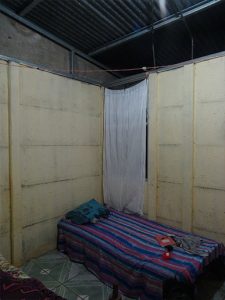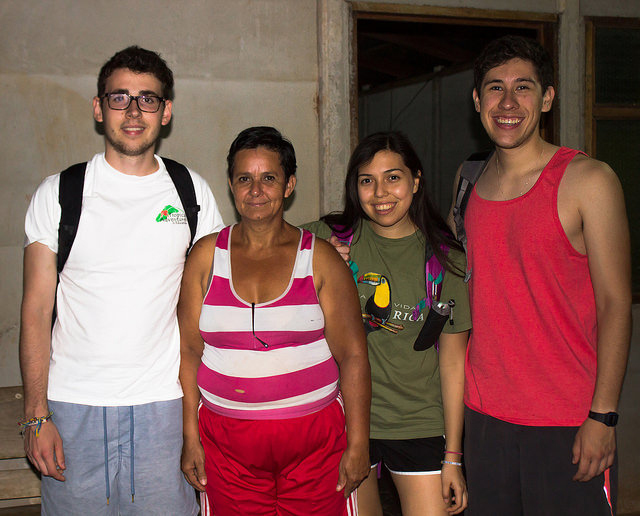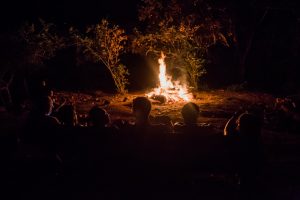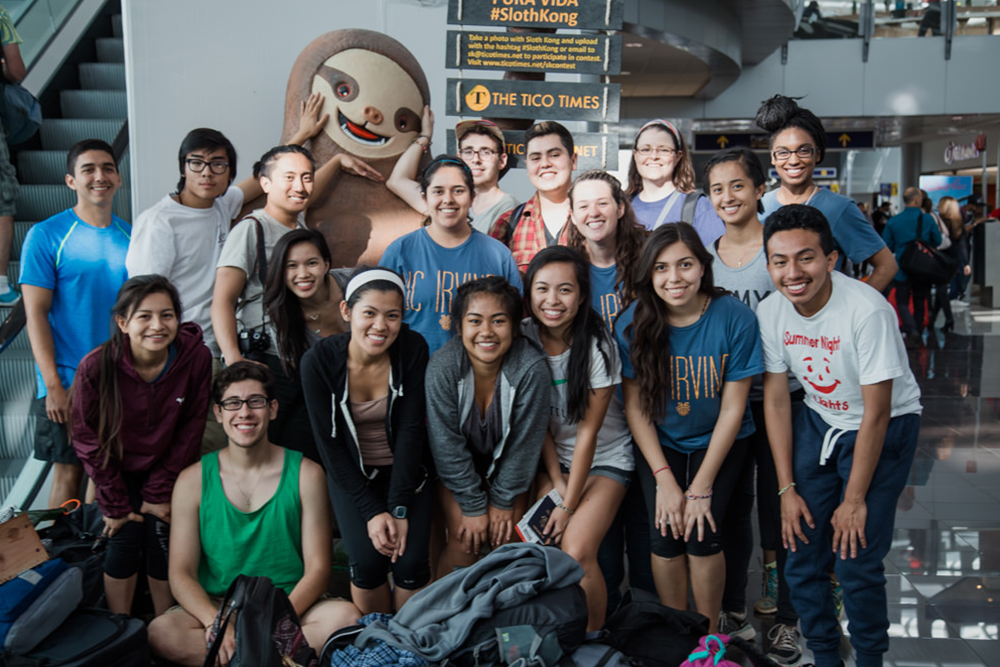
During my stay in Costa Rica, I spent two nights with a local host in the small rural community of Mastatal. The home, like many others in the community, was constructed in familiar fashion: floor, external walls, internal walls and roof were all accounted for. Notably, however, there was no ceiling; that is, there was substantial space between the top of the internal walls and the roof above.
This seemed of little consequence until I found myself familiarized with the bowel movements of our host: Lus Milda.

Indeed, the community of Mastatal is host to beautiful views, incredible subsistence practices and the sweetest freaking pineapples, but privacy might first seem a little scarce.
Everyone knows each other and dirty laundry is literally hung in clear sight of the neighbors. I definitely value my privacy – it’s a nifty thing after all, and none too abundant on a crowded campus – and I certainly would have been happy to have indulged in the luxury of a privacy-affording ceiling during my brief stay in the lavatory. Importantly, however, there are many ways that Juan, Ceci and myself – the three of us that were staying with Lus – grew closer together as a direct result of compromised privacy whether that be Juan and I sharing the double bed together or the aforementioned bathroom ventilation system. In fact, waking up at 4:30AM to the incessant squawking of Dolfin, Lus’ goose, I recall asking Juan next to me if he felt like he were closer to our hosts as a result of overhearing them in their most intimate moments of survival. Juan, much to my surprise, agreed.

Privacy is a great thing. Undeniably. But at times it also seems a barrier to connectedness.
This is not necessarily a problem in itself, but it certainly is if one values community. Community is that which housed us for our entire stay in Mastatal. Community is what fed us. Quite simply, it is community that is responsible for the sustainable practices, education, and culture that we flew six hours to investigate. The hospitality of the people in Mastatal is indisputable; their generosity boundless. Marcos’ family raised a pig for six months just so that our group might partake in pork. Every night Lus Milda hosts five or more non-relatives in her modest home. I can’t help but question the value of privacy in a community that operates as if family – and how much our notions of privacy would actually interfere with such closeness.
There were a number of times that our group shed some aspect of privacy and each successive occasion led to greater unity.

Something we embarked on together were evening reflections. This was a chance to – surprise! – reflect on the day, recount our experiences, and share in specific thought processes. Naturally the input of each individual varied, but I think we can all say that through these reflections we made ourselves vulnerable at one time or another. As a result we grew closer together as a team. The process of stripping back the defense of privacy resulted in the strengthening of our community – and this is something that can take place not only in Costa Rica but anywhere! Many of us, in discussion since our return, have mentioned a desire to host reflections with those around them in every day life.
The prognosis, then…
While I’m not going to prescribe that we all take up sledgehammers and knock out an opening in our bathrooms in an effort to dismantle the nefarious institution of privacy – although this could certainly be explored – I am committed to allowing myself to be vulnerable in a group and I urge that you join me – try putting yourself out there every now and then! Cut the small talk and get straight to the serious stuff. Quit hiding your passion in an attempt to seem chill. Step out of your comfort zone, but perhaps more importantly, be vulnerable. You’ll probably find people far more accepting – and even receptive! – than you anticipate. Only when we all know each other’s dirty secrets can we hope to be a great big happy family.

Andre Vidal.

Hola Dre!
I have to tell you, your title is what drew me in to read your blog! I am a former Costa Rica Program participant (2014) and I am loving reading about your groups experiences. I love your take on the way their homes are built and how this does indeed reduce privacy but certainly inspires community. When I returned to my home in Orange County after the trip, I had this sense of feeling almost too closed in from the outside world, I really missed that open feeling of being close to the world (the people, the environment) around me. And I deeply miss our reflections. Sitting and talking with others without the distractions of phones, laptops, social media was hands-down one of my favorite parts of the trip. It makes me kind of sad that we don’t do it more often in our society here. i definitely value my privacy and alone time, but I think you raise a great question- are we getting too much privacy? And is this why so many people don’t know their neighbors?
Thank you again for this thought-provoking blog, I really enjoyed reading it. 🙂
Pura Vida! ~Olivia
Hi Olivia,
I’m glad you enjoyed it – and also that I’m not the only one to have had such experiences! It’s certainly interesting to explore common notions of privacy between different cultures. I actually grew up in New Zealand and even the differences between there and California are vast!
Thanks for reading!
Pura Vida! Dre